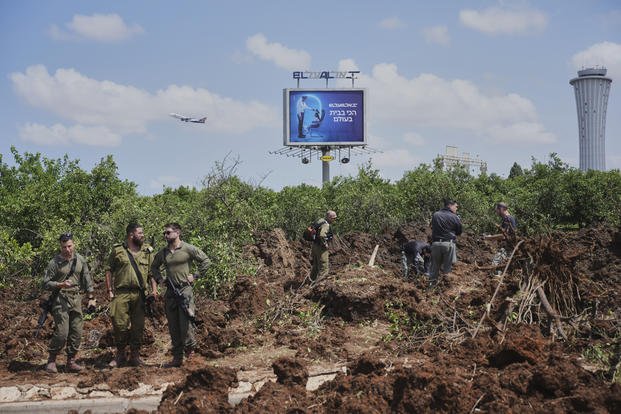Israel Launches Airstrikes on Yemen Following Houthi Missile Attack on Israeli Airport
In a sharp escalation of regional tensions, Israel launched a series of airstrikes on Yemen just one day after Houthi rebels claimed responsibility for a missile attack targeting an Israeli airport. The retaliatory strikes signal a deepening involvement in the Middle East’s wider conflict landscape, raising alarms across global diplomatic and security circles.
According to official Israeli sources, the airstrikes were aimed at military infrastructure and weapons depots used by the Iran-backed Houthi movement in Yemen. While the exact number of casualties has not yet been confirmed, early reports suggest significant damage to key strategic sites.
This action comes in direct response to what Israeli authorities described as a “blatant act of aggression” following the Houthi missile strike on Ramon Airport in southern Israel. The attack, which temporarily halted airport operations, is the latest in a string of increasingly bold moves by the Houthi rebels, who have declared their support for Palestinian factions amid the ongoing Israel-Gaza war.
The Houthi movement, officially known as Ansar Allah, has been expanding its reach beyond Yemen’s borders, launching missiles and drones at targets in the Red Sea, Saudi Arabia, and now Israel. These latest developments mark a dramatic shift in the group’s operational strategy, which now seems to embrace more direct confrontations with Israeli military and civilian infrastructure.
Israel’s Defense Ministry issued a statement shortly after the strikes, reaffirming its right to self-defense and warning of further military action should such attacks continue. “Any threat to Israeli sovereignty will be met with decisive and immediate action,” the statement read.
Meanwhile, international observers are closely monitoring the situation, with the United Nations and key world powers urging de-escalation. However, with Iran’s continued support for proxy groups like the Houthis and Hezbollah, and Israel’s determination to neutralize regional threats, the prospect of broader conflict looms large.
Analysts warn that this tit-for-tat dynamic could spiral into a multi-front war, especially given ongoing hostilities in Gaza and rising tensions along Israel’s northern border with Lebanon. The possibility of the conflict drawing in more regional actors has prompted calls for urgent diplomatic intervention.
As the situation unfolds, all eyes are on the Middle East, where every action taken by Israel, the Houthis, and their allies could have far-reaching consequences for regional and global stability.
Source : Swifteradio.com


